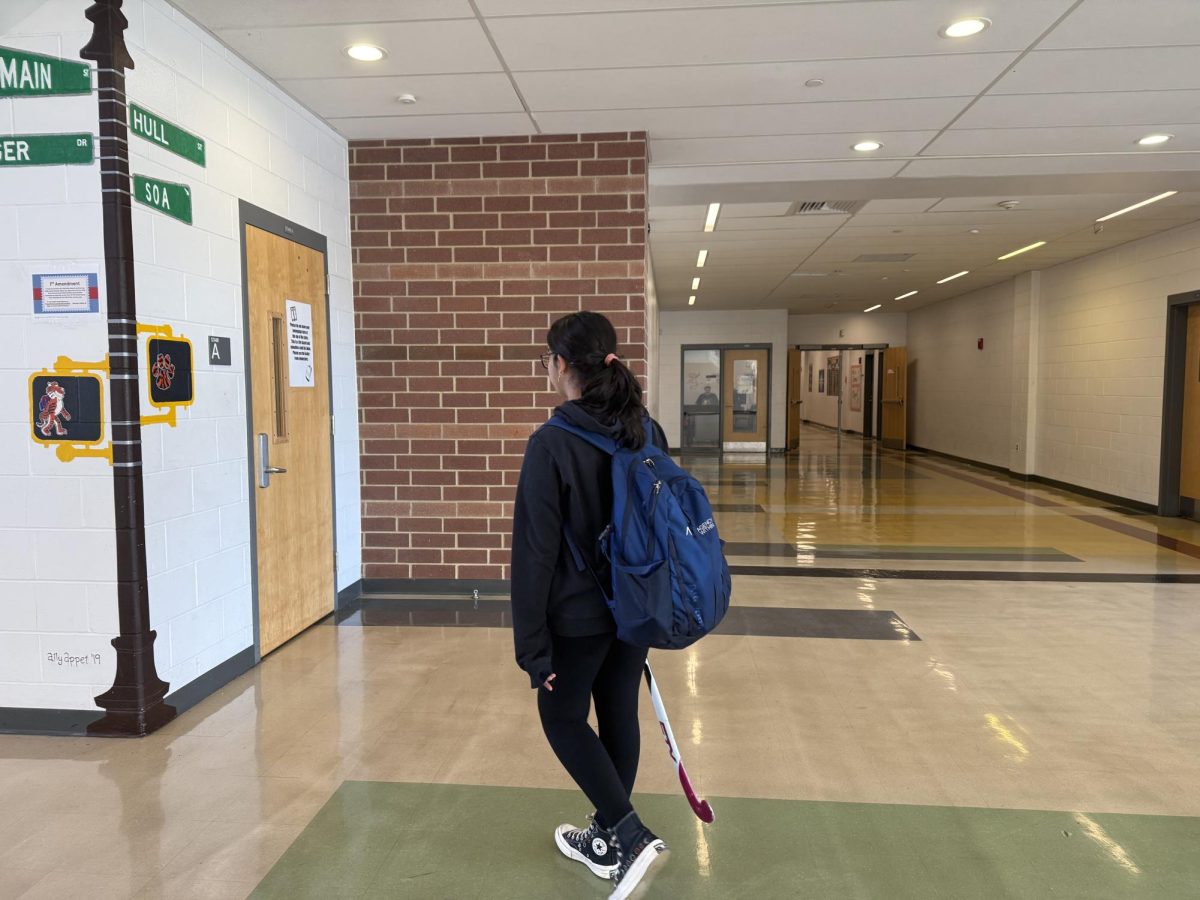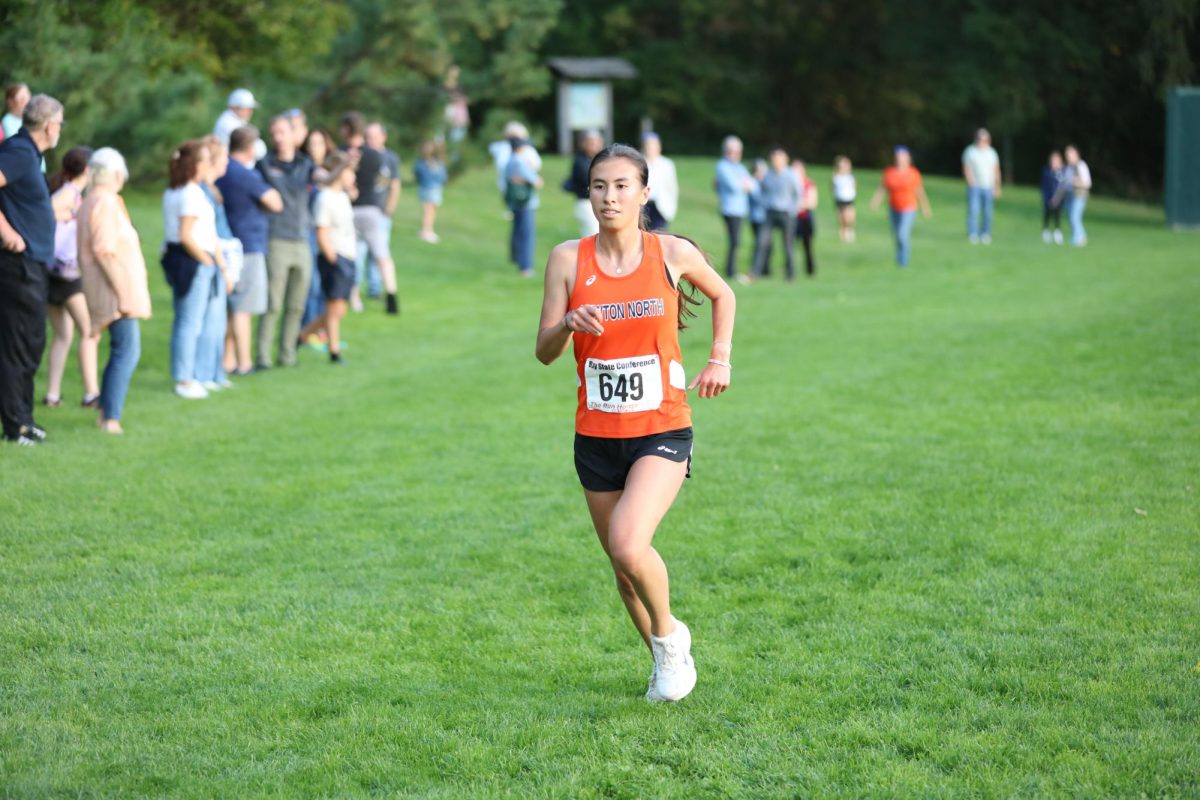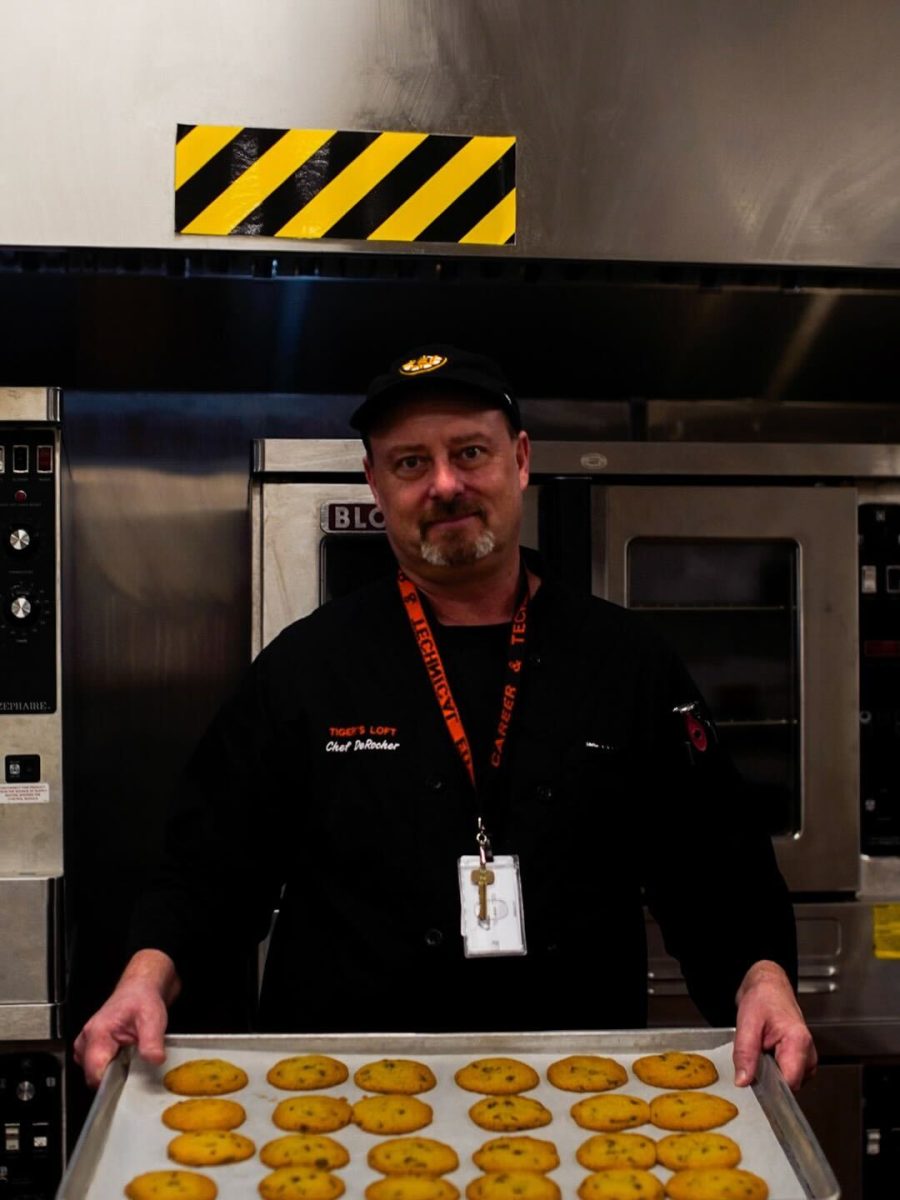 [/media-credit]
[/media-credit]
- History teacher Gregory Drake discusses the immediate and long term effects of the September 11th attacks.
by Jacob Schwartz
Normally high school students have not experienced the events discussed in their history classes.
However, in history classes throughout this school in the days following Sunday, Sept. 11 students were able to connect with the curriculum, as the events that were discussed affected each student personally and immediately.
For the 10th anniversary of Tuesday, Sept. 11, 2001, history teachers were asked to focus on the events and the aftermath of September 11.
The decision to teach about September 11 in Newton history classes for grades six through 12 was made by history department head Jonathan Bassett, South history department head Jennifer Morrill and K-8 social studies coordinator Lucia Sullivan.
Bassett said the intent of the classes was “to make sure students know what happened and why it is important to our history.”
Teachers did not have to stick to a central lesson plan, according to Bassett. “We provided materials for teachers to use if they wanted to or to get them started, but what the students learned and discussed about September 11 was up to the teachers of each class.”
Ty Vignone said he used many steps to teach his students about September 11.
He began his classes by giving his students a packet of facts, the goal of which was simply to show students what happened, how it happened and to clear up any misconceptions, he said.
“For example, many of my students had thought before that September 11 was Al Qaeda’s first big attack,” Vignone said. “They learned Monday that September 11 was actually Al Qaeda’s fourth attack.”
Next, Vignone’s students discussed personal experiences, and Vignone invited faculty from the school to speak about their own September 11 experiences.
According to Vignone, “All the teachers that came in had a different recollection because when you’re five years old, you don’t quite get it, but if you were an adult, you were so traumatized that you don’t always even remember certain details that other people remember. Everyone remembers different things.”
In class Monday, Sept. 12, Katharine Heidlage’s students spoke to one another about their personal experiences from September 11. “One girl remembered her mother crying, and I thought it was surprising that this student would actually be able to remember something that vivid from such an early age,” Heidlage said.
Heidlage’s classes then continued by studying the events of the September 11 attack. “Most of my students were surprised to learn that September 11 wasn’t the first attack on the World Trade Center. There was a bombing by Al Qaeda in 1993 in the basement of the towers.”
For their homework over the weekend of the anniversary of the attacks, students in John Fitzgerald’s th and 10th grade classes interviewed adults in their lives on the events of September 11, and what the experience was like for them.
“I learned from this activity that a lot of people have indirect or even direct connections to the attacks that I had no idea about,” Fitzgerald said.
Junior Emory Holmes, a student in David Bedar’s U.S. History class, said Bedar’s class Monday, Sept. 12 showed students “who we are now as a country and how we’ve dealt with terrorists.” During the class, Holmes said students discussed whether it was ethical to torture suspected terrorists and to force them to endure long trials. “I didn’t really learn a ton of new stuff, but it did made me think.”
The goal in Gregory Drake’s history classes was “to make sure students looked at how our society changed,” Drake said. “I found that in general, students felt that the people of our country had become less trustworthy. One of my students really summed it up well, by saying ‘September 11 was when America lost its innocence.’”
Drake’s classes also dicussed the aftermath of September 11. “Many students said that it brought out the best in our people because of the rise in nationalism.”








































